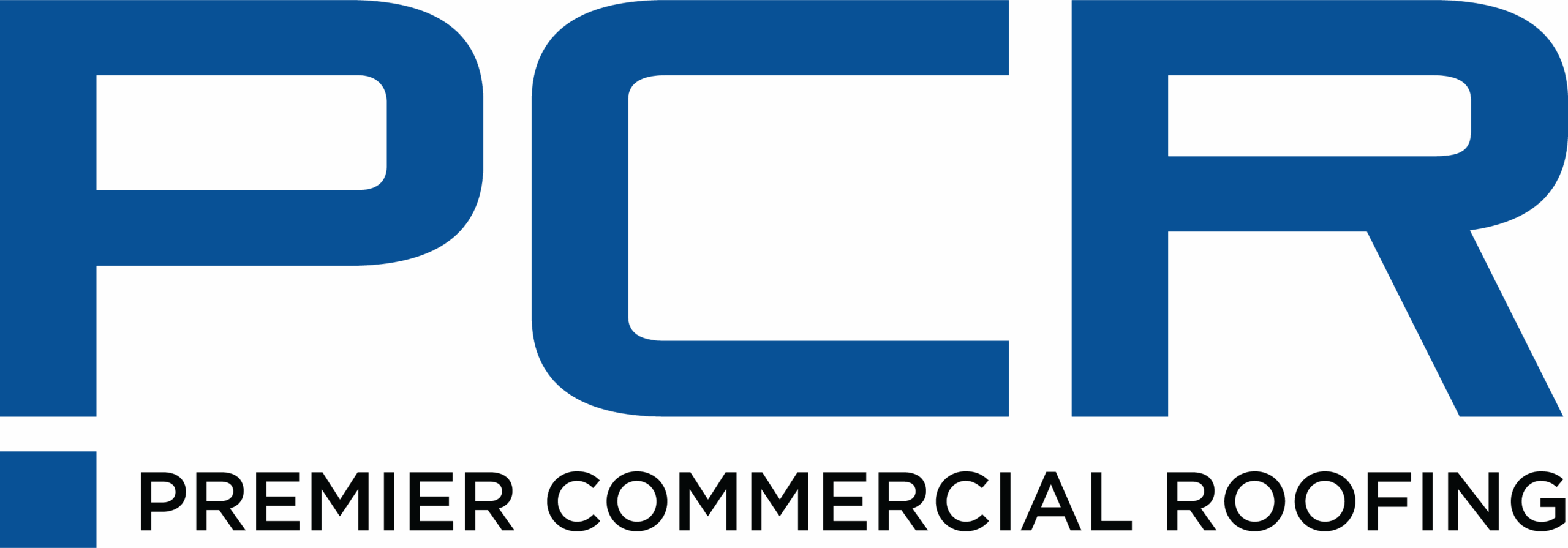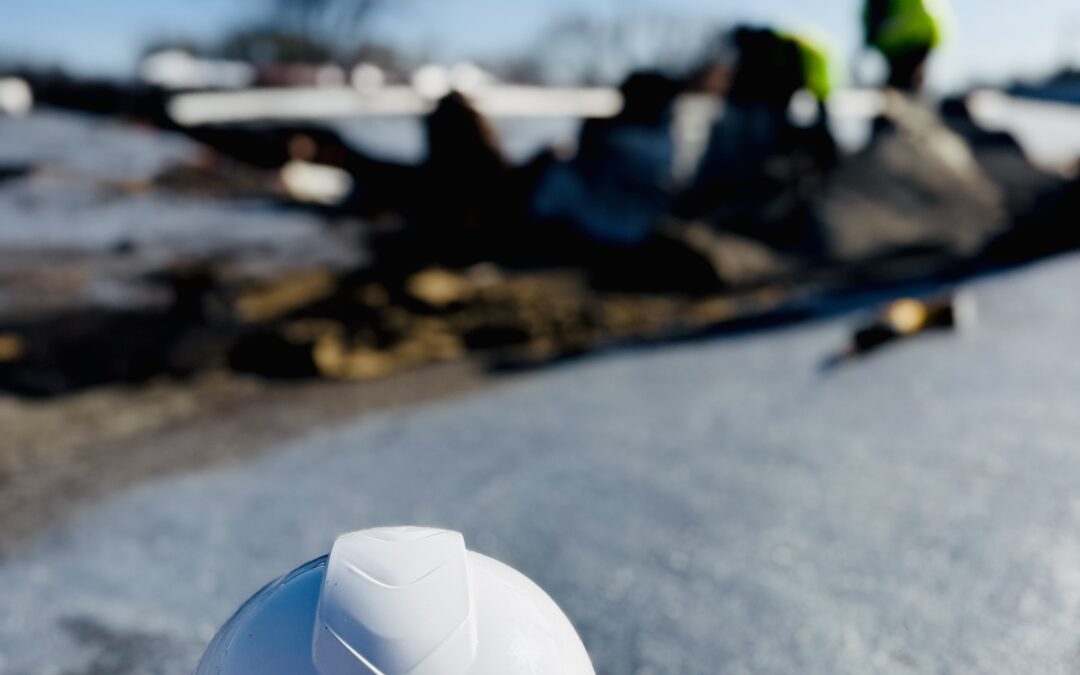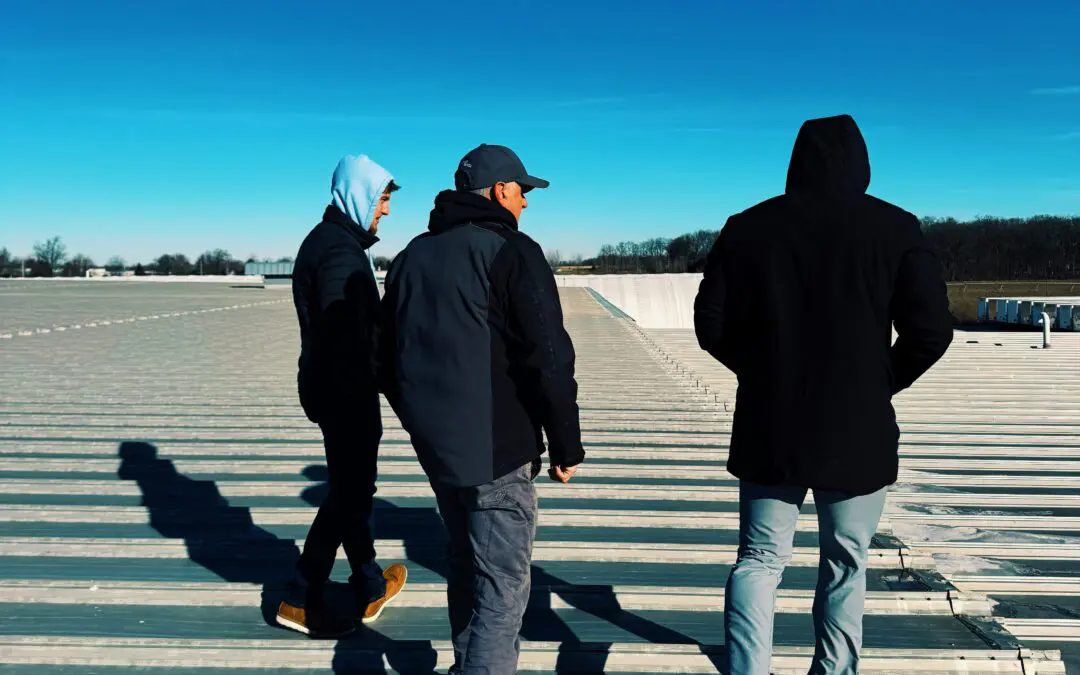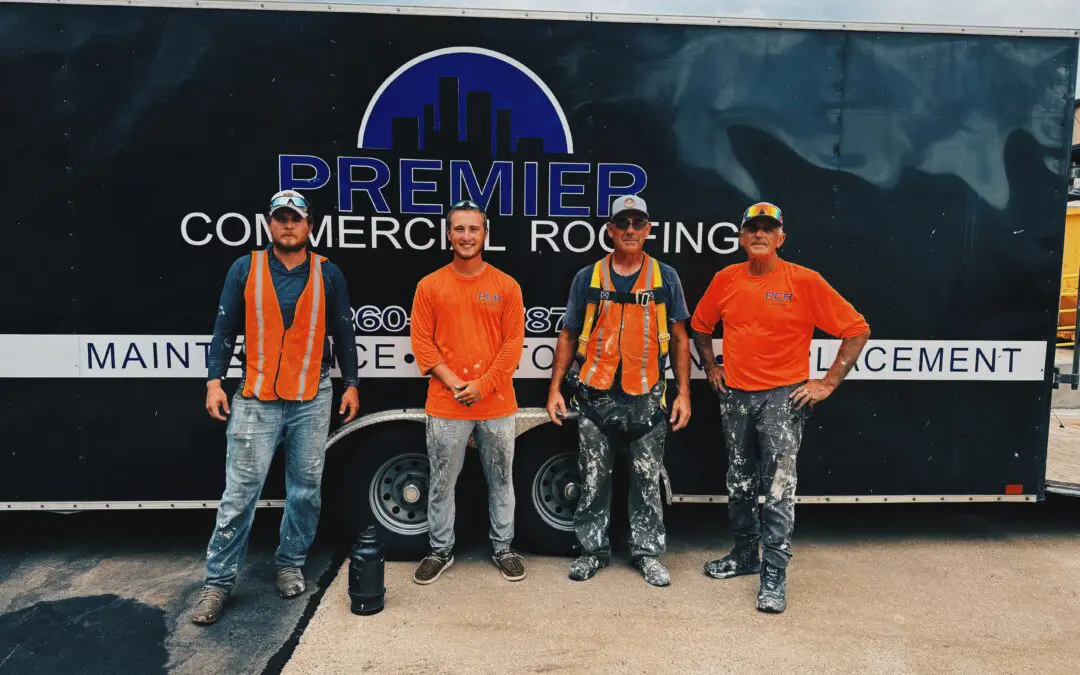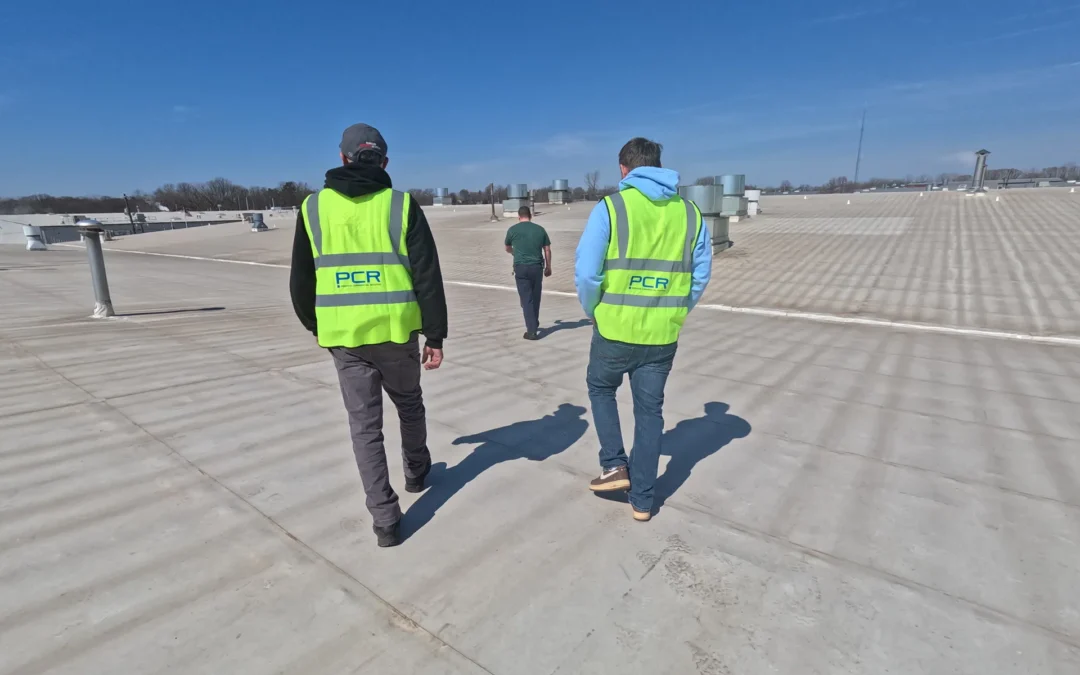Most Common Types of Commercial Roofing Materials Used
Blogs
Spring Is Here Is Your Commercial Roof Ready?
Winter can be tough on commercial roofs. Snow, ice, freezing temperatures, and heavy winds often leave behind hidden damage that business owners don’t notice until it turns into a costly problem. Spring is the perfect time to schedule a roof inspection and make sure...
Don’t Wait For a Leak: Signs Your Commercial Roof May Be Failing In Indiana.
Many Business owners assume their roof is fine as long as there are no visible leaks. Unfortunately, that a risky mindset that can cost you thousands or even hundreds of thousands in unexpected repairs, downtime, and damage. By the time water is dripping through your...
Commercial Roofing FAQs: Answers Every Indiana Business Owner Should Know
If you own or manage a commercial building in Indiana, your roof does a lot more than “keep water out.” Between freeze-thaw cycles, heavy rain, wind, hail, and snow loads, Indiana roofs take a beating year round. This FAQ breaks down the most common questions we hear...
How a Simple Maintenance Check Can Save You From Major Roof Problems!
At Premier Commercial Roofing, we know your building is more than just a structure it’s your investment, your business, and your responsibility. And one of the biggest ways to protect that investment is by keeping your commercial roof in good shape. The good news? A...
Is Your Commercial Roof Ready For Winter? PCR’s Top Maintenance Tips
As the cold weather rolls in, your commercial roof becomes your building’s first line of defense against snow, ice, and freezing temperatures. At Premier Commercial Roofing , we know how critical it is to prepare before winter hits because a little maintenance now can...
Top Strategies for Maintaining and Extending the life of Your Commercial Roof
Your commercial roof is one of the most valuable parts of your building. Without proper maintenance, even the best roofing systems can fail early, leading to expensive repairs or premature replacement. The good news? With consistent care and professional support, you...
Why Choose Premier Commercial Roofing as Your Roofing Contractor
Why Choose Premier Commercial Roofing as Your Roofing Contractor When it comes to protecting your commercial building, your roof is one of the most important investments you’ll ever make. At Premier Commercial Roofing, we understand that you need a roofing system that...
Duro-Last vs. Traditional Commercial Roofing: Why Fort Wayne Businesses Are Making The Switch
Discover Why Fort Wayne businesses are switching to Duro-Last over traditional Commercial Roofing.
Commercial Roofing Innovations & Technology
Premier Commercial Roofing is always at the forefront of the latest roofing technologies and innovations.
Commercial Roof Installation Guide
Your commercial property’s roof is one of the most important features of the building. It does more than just protect your property from the elements; it helps keep your building safe, energy-efficient, and secure.
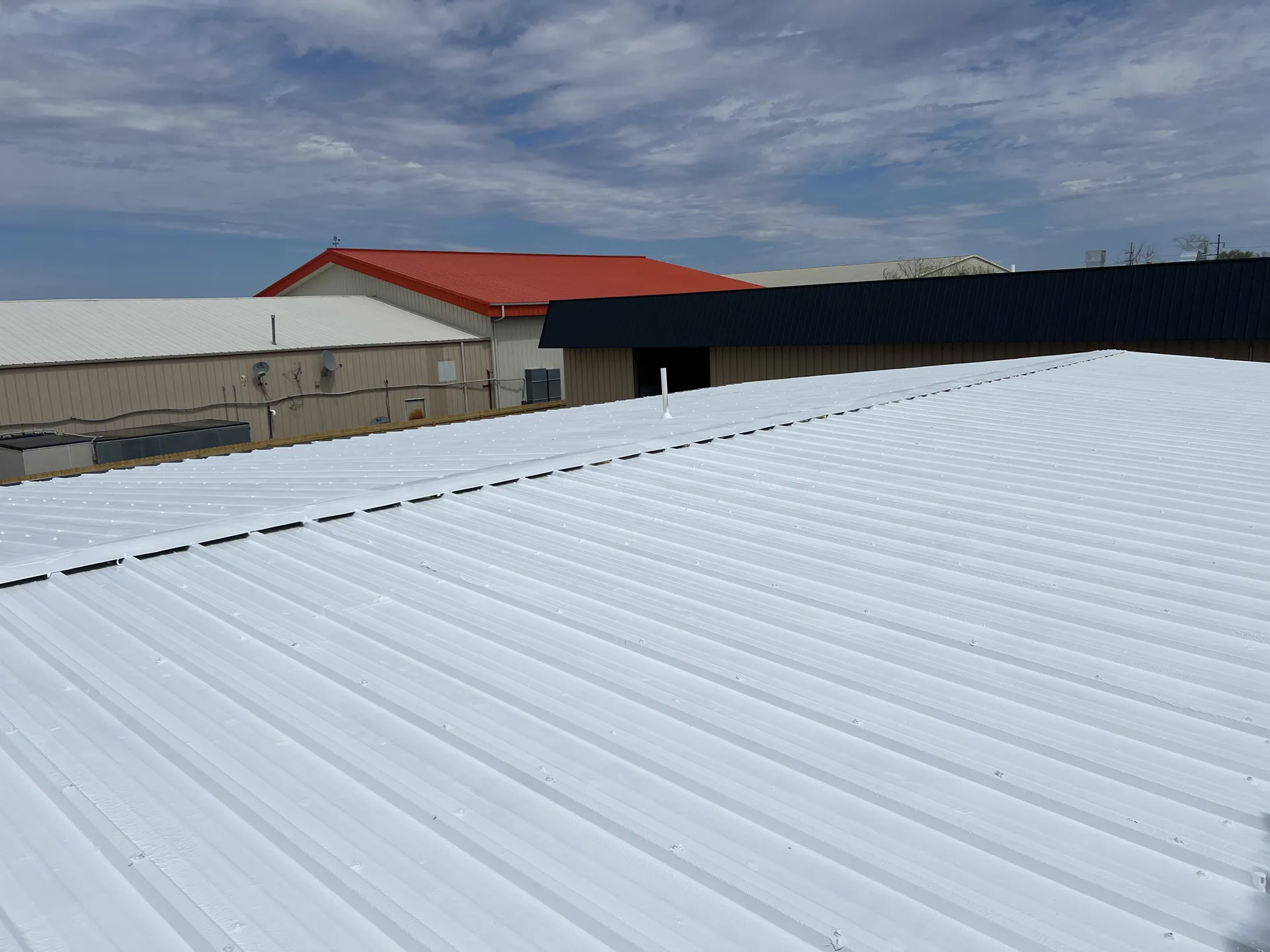
Commercial roofing materials come in a wide array of costs, aesthetics, durability, and maintenance requirements. Also, each roofing material comes with its share of pros and drawbacks. Understanding what every material offers can help you make the right decision. Fortunately, our experienced commercial roofing contractors at Premier Commercial Roofing are ready to help you make the right decision.
Request a Free Estimate
Need to know how much your cost?
Metal
There is no denying that metal is one of the most popular and oldest commercial roofing materials. Metal roofing materials are built from metal panels or shingles attached to a metal frame or deck. These roofing solutions are available in different materials, including zinc, aluminum, tin, and copper.
Pros of Commercial Metal Roofing
- Last Longer than Most Commercial Roofing Materials – Commercial metal roofs can give you 40 to 70 years of service, depending on the type of metal used and the level of maintenance.
- Offer Exceptional Energy Efficiency – Since metal roofs can reflect solar heat, they can enhance energy efficiency and lower cooling costs in your office. They also have insulation properties and can keep your home warm in winter.
- Provide Unmatched Aesthetic Appeal – Commercial metal roofs are available in various color styles, designs, and finishes. This means you can find a roofing material that aligns with your facility’s aesthetic appeal.
- Can be Recycled – Commercial metal roofs can be recycled at the end of their lifespan.
- Offer Unmatched Longevity – Commercial metal roofs resist corrosion, wind, fire, and hail. This means you won’t have to worry about constant repairs or replacements when installing a commercial metal roof.
Cons of Commercial Metal Roofing
- Tend to be more expensive than most roofing materials, such as asphalt shingles.
- They can be noisy during hailstorms or rain if not adequately insulated or installed.
- Commercial metal roofs can bend or scratch easily if not painted or coated correctly.
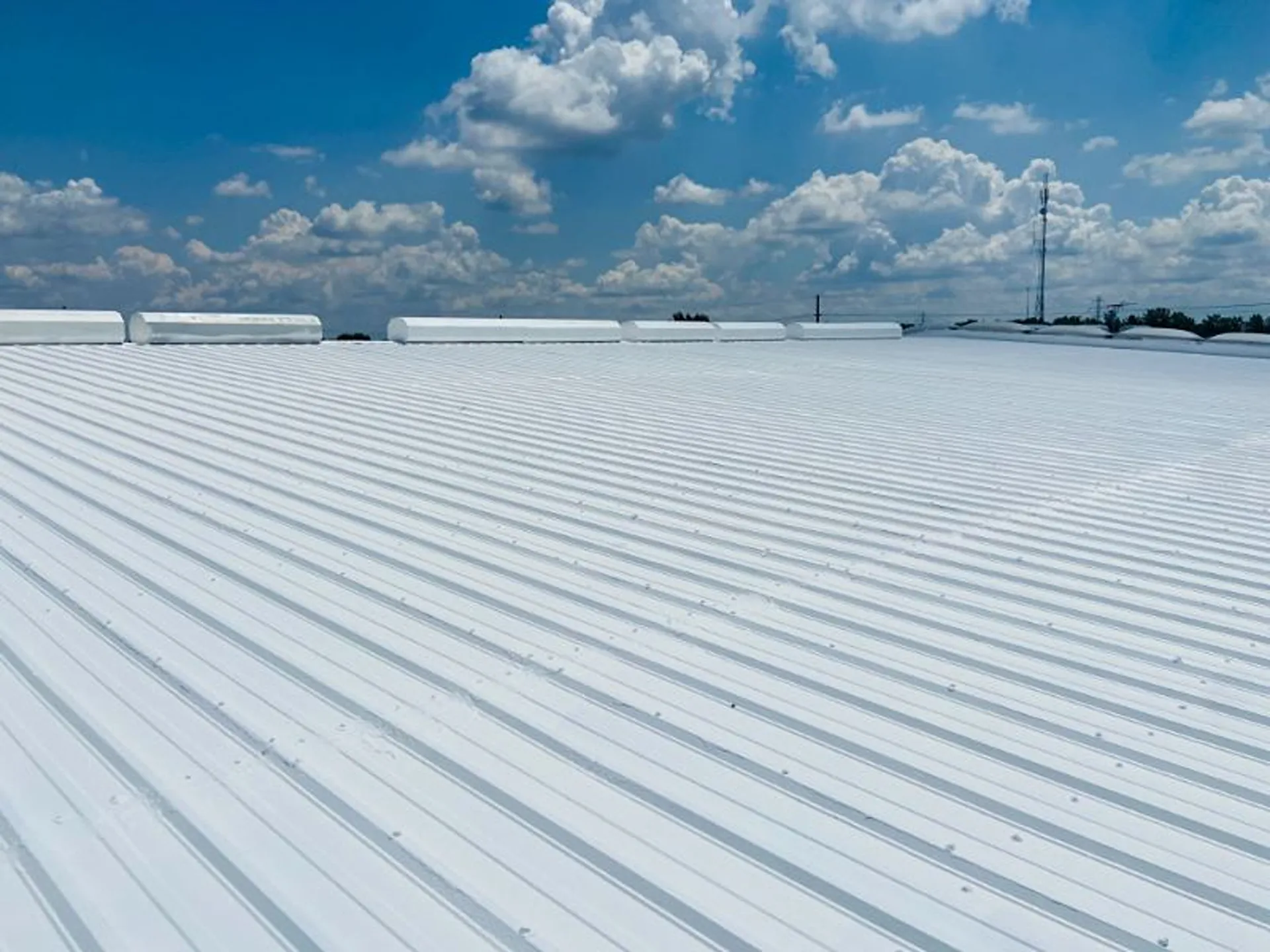
Asphalt Shingles
Asphalt shingles are also common in the world of commercial roofing. They are made of asphalt-coated fiberglass or an organic mat covered with mineral granules. One of the biggest highlights of asphalt shingles is that they offer a variety of shapes, colors, and styles.
Pros of Asphalt Shingles
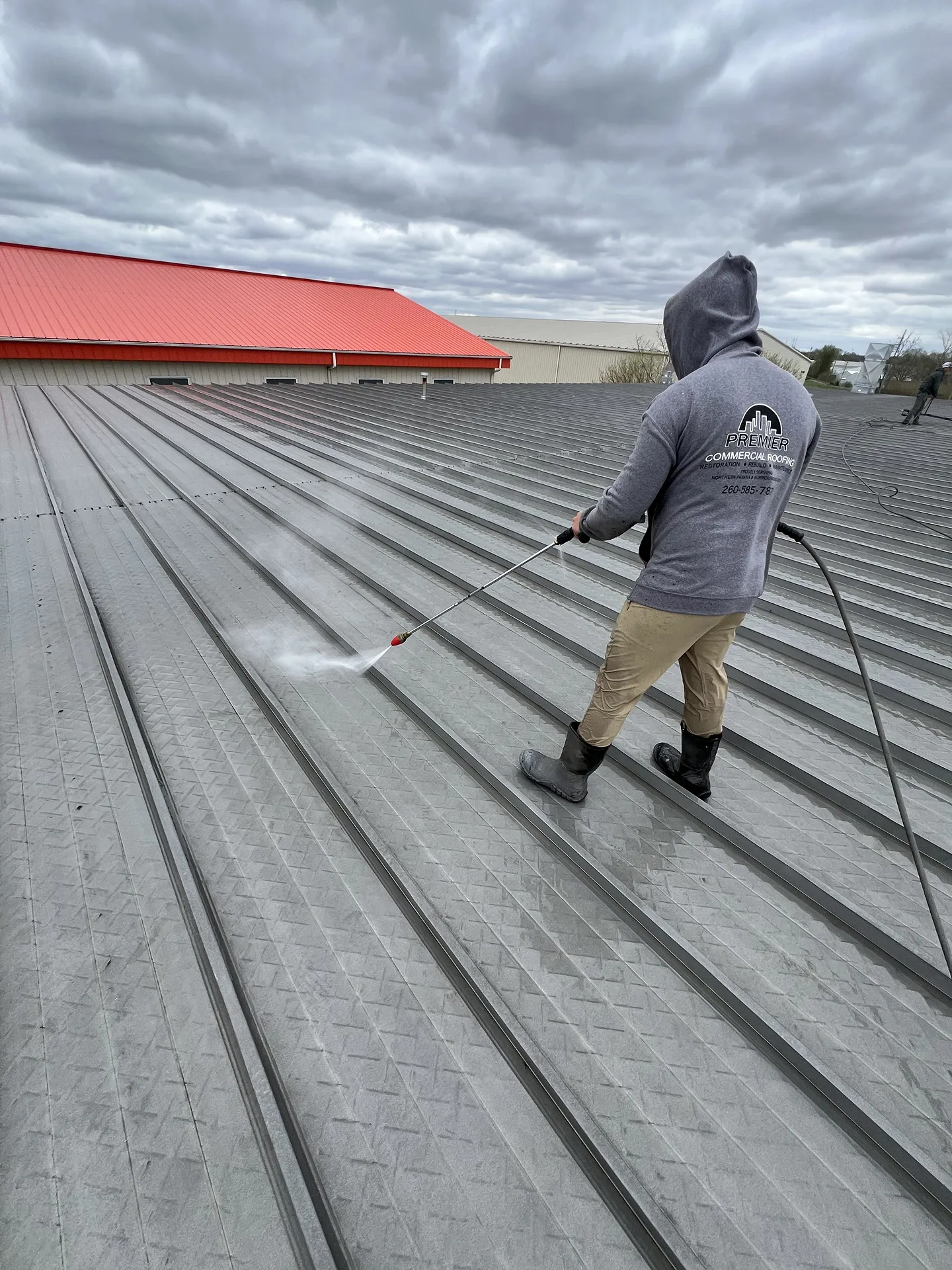
- Offer Unmatched Flexibility – Commercial asphalt shingles are available in various colors, textures, and styles. That means you can find asphalt shingles that match your commercial building’s aesthetics and design preferences.
- Inexpensive Compared With Other Commercial Roofing Materials – Asphalt shingles are relatively inexpensive than other commercial roofing materials, such as metal or clay tiles. Asphalt shingles will cost you anywhere from $80 per square foot.
- Have Minimal Maintenance Requirements – Since asphalt shingles are resistant to wind, algae growth, and hail, they usually have minimal maintenance requirements, unlike other commercial roofing materials.
- Easy to Install – Commercial asphalt shingles are typically easier to install than other roofing solutions. However, working with a professional commercial roofing contractor is advisable to guarantee a safe and successful installation.
- Environmentally Friendly – Asphalt shingles can be recycled and used for other purposes after their lifespan.
Asphalt Shingles Cons
- Asphalt shingles have a shorter lifespan than roofing materials such as metal.
- They tend to be susceptible to damage from UV rays, moss, algae, and extreme winds.
- They are not suitable for low-slopped or flat roofs.
Built-Up Roofing
Built-up roofing, commonly called BUR, consists of several layers of felt and asphalt. BUR also consists of a top layer of gravel or other aggregate. This roofing material is not new in the world of commercial metal roofing. It’s among the oldest and most durable roofing materials available.
BUR Pros
- Provides Excellent Reliability – BUR is resistant to wind, UV damage, fire, and water. It can also withstand harsh weather conditions.
- Offers Exceptional Durability – Commercial BUR is among the most durable roofing materials. It provides 30 years or more of service with proper care and inspection.
- Can Save You Money – BUR offers exceptional cost-effectiveness and low initial cost.
- Energy Efficient – Built-up roofing can save money on energy bills by providing excellent insulation and reflecting heat.
BUR Cons
- BUR can be challenging and time-consuming to install and remove.
- It is heavy and requires a strong roof deck to support it.
- BUR is not as aesthetically pleasing as other roofing materials.
Single-Ply Roofing
Single-ply roofing membrane is a modern solution comprising a single layer of a synthetic material such as EPDM, PVC, or TPO. The material can be attached to the insulation or roof deck by mechanically fastening, fully adhered, and ballasted.
Single-Ply Roofing Pros
- Proven Track Record of Reliability and Performance – Commercial roofing membrane has been around for quite some time and has demonstrated exceptional performance and reliability. Also, manufacturers are now leveraging technology to improve its reliability and performance.
- Offers Exceptional Versatility – Single-ply roofing membranes are available in various styles, materials, and textures. Business owners can also choose the type and thickness of insulation that aligns with their budget and needs.
- Offer Excellent Energy Efficiency – Single-ply membranes are highly reflective and offer excellent energy efficiency.
- Suitable for Low Slopped or Flat Roofs – Single-ply membranes are the go-to roofing solution for commercial facilities with low slopes or flat roofs.
Single-Ply Roofing Cons
- It can be easily punctured by debris and sharp objects.
- It can be challenging to install around penetrations.
- It may not be compatible with some existing roofing systems.
Keep Your Commercial Roof In Top Shape With Premier Commercial Roofing
Investing in regular commercial roof maintenance is an intelligent decision that protects your business, preserves its value, and ensures a solid foundation for growth. Don’t leave the fate of your roof to chance; partner withPremier Commercial Roofing to keep your roof in top-notch condition.
